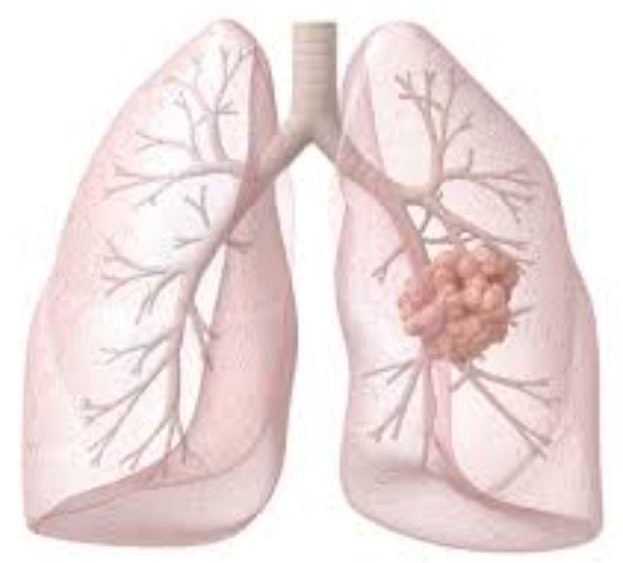Common diseases we treat:
Lung Cancer

Lung cancer is a disease in which cancer cells form in the tissue of the lungs. There are two main types of lung cancer, small cell and non-small cell carcinoma. The two most common types of non-small cell cancer are adenocarcinoma and squamous cell carcinoma.
Smoking is a major risk factor for lung cancer. Second-hand smoke, asbestos exposure and radiation therapy to the chest are also risk factors. Some common symptoms include a cough that does not go away, shortness of breath and coughing up blood. Often, there there can be no symptoms, but the cancer is found incidentally on a x-ray or CT scan.
We are involved with patients during diagnosis, staging and treatment. Staging is the process of determining if cancer is localized to the lung or has spread to other regions of the body. We can order MRI’s, PET scans or do a procedure called mediastinoscopy to sample lymph nodes. Additionally, our surgeons have expertise in Endobronchial Ultrasound Bronchoscopy (EBUS), which is a minimally invasive but highly effective procedure used to diagnose lung cancers or certain infections. Once lung cancer is diagnosed, and if indicated, we surgically remove the cancer and surrounding lymph nodes. Our surgeons perform both Robotic Assisted and Video Assisted Thoracoscopic procedures. These are the procedures that remove the portion of the lung that contains the cancer. How much lung is removed depends on many factors including size and location of the tumor, staging, and your overall health and lung function.
Frequently asked questions
How long does this procedure typically take?
Typically around 2-3 hours.
How long will I be in the hospital?
Usually 2-5 days.
When will I return to work?
4-6 weeks, depending on the type of work you do.
Will I need to follow up?
You will follow up with us after surgery either in our office or via video teleconference 1-2 weeks after leaving the hospital. You will also need follow up with your oncologist and PCP.
